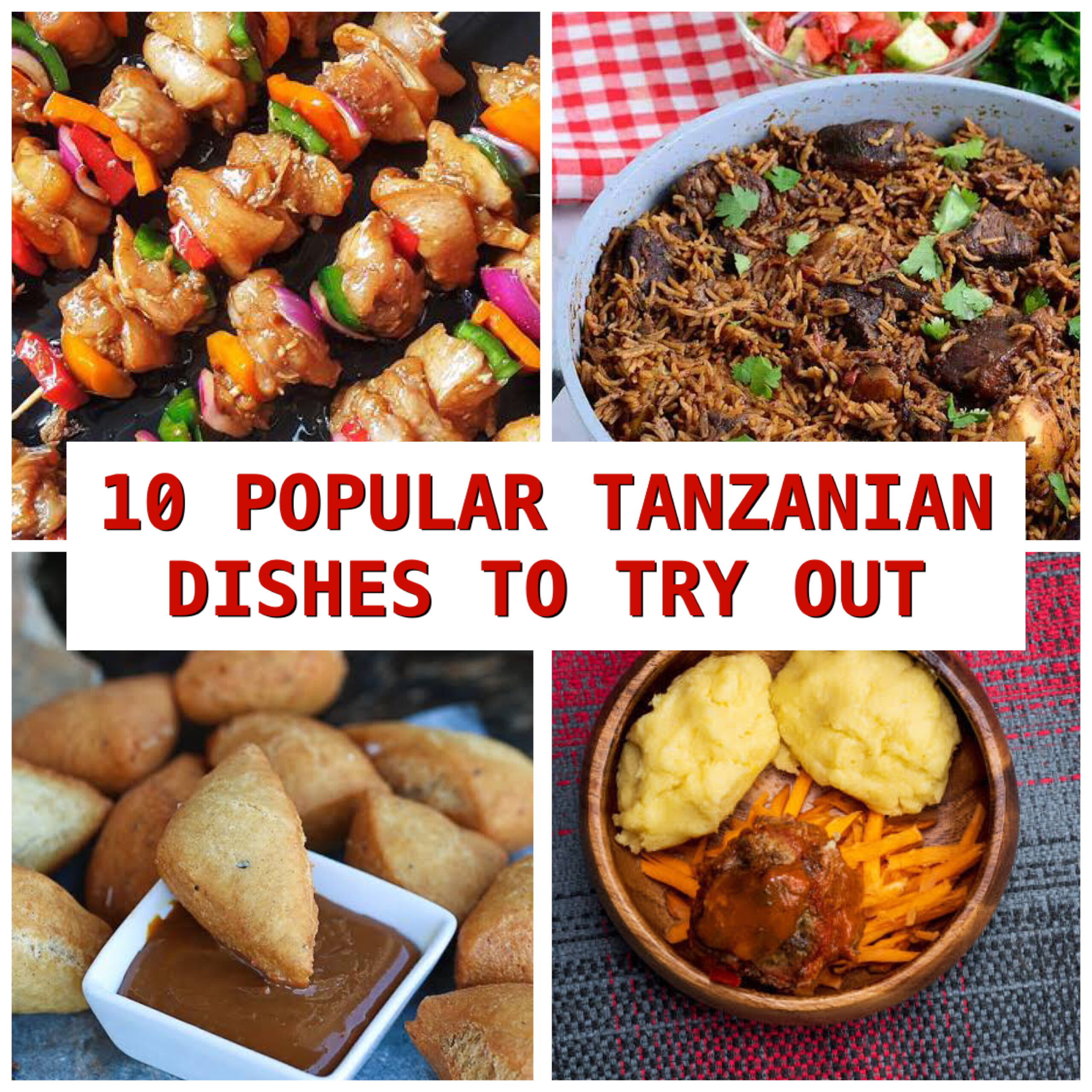Embark on a tantalizing culinary journey as we discover the colourful flavors, wealthy traditions, and charming historical past of Tanzanian meals. From the bustling streets of Dar es Salaam to the serene shores of Zanzibar, Tanzanian delicacies is a symphony of tastes and textures that can ignite your senses and depart you yearning for extra.
With its various cultural influences and an abundance of clean, native elements, Tanzanian meals is a culinary melting pot that displays the rustic’s wealthy historical past and colourful spirit. Sign up for us as we delve into the center of Tanzanian delicacies, uncovering the secrets and techniques of its distinctive dishes, regional permutations, and the cultural importance that makes it so a lot more than only a meal.
Conventional Tanzanian Delicacies

Tanzanian delicacies is a colourful and numerous culinary custom that has been formed by means of centuries of cultural influences from Africa, the Heart East, and Asia. The rustic’s distinctive geographical location, with its sea coast at the Indian Ocean and its proximity to the Nice Lakes area, has contributed to the advance of a wealthy and sundry delicacies that displays the rustic’s various ethnic teams and cultural heritage.
Conventional Tanzanian delicacies is characterised by means of its use of clean, in the community sourced elements and a mix of spices and herbs that create a singular taste profile. The staple elements of Tanzanian delicacies come with maize (corn), rice, cassava, and beans, which can be continuously blended with meat, fish, or greens to create hearty and flavorful dishes.
Staple Substances and Cooking Strategies, Tanzanian meals
Maize (corn) is an important staple crop in Tanzania and is utilized in a lot of dishes, together with ugali, a thick porridge this is eaten with meat, fish, or greens. Rice is any other essential staple and is continuously cooked with beans or greens to create pilau, a flavorful dish this is served with meat or fish.
Cassava is a root vegetable this is boiled, fried, or roasted and is continuously used as an aspect dish or as a thickener for soups and stews. Beans also are the most important a part of Tanzanian delicacies and are continuously cooked with maize or rice to create hearty and nutritious dishes.
Conventional Tanzanian cooking strategies come with boiling, frying, roasting, and grilling. Meat and fish are continuously grilled or roasted, whilst greens are continuously boiled or fried. Ugali is generally cooked by means of boiling maize flour in water till it paperwork a thick porridge.
Cultural Importance and Social Customs
Tanzanian delicacies is deeply rooted within the nation’s tradition and social customs. Meals performs the most important position in Tanzanian society and is continuously used to have a good time particular events, similar to weddings, funerals, and non secular fairs.
Conventional Tanzanian dishes are continuously served communally, with friends and family sharing a big meal. Consuming in combination is observed in an effort to beef up social bonds and to have a good time the rustic’s wealthy cultural heritage.
Tanzanian delicacies is a colourful and numerous culinary custom that displays the rustic’s wealthy cultural heritage. The usage of recent, in the community sourced elements and a mix of spices and herbs creates a singular taste profile this is loved by means of Tanzanians and guests alike.
Common Tanzanian Dishes: Tanzanian Meals

Tanzanian delicacies is a various and flavorful mix of African, Arab, Indian, and Ecu influences. Listed here are one of the most hottest Tanzanian dishes:
Ugali
Ugali is a staple meals in Tanzania, constituted of cornmeal or cassava flour. This is a thick, doughy porridge this is generally served with stews, soups, or greens.
Nyama Choma
Nyama Choma is grilled or roasted meat, most often pork, goat, or hen. This is a common dish for particular events and is continuously served with ugali and kachumbari, a recent tomato and onion salad.
Sukuma Wiki
Sukuma Wiki is a standard Tanzanian dish constituted of collard vegetables. It’s generally cooked with onions, tomatoes, and spices, and is continuously served with ugali.
Chipsi Mayai
Chipsi Mayai is a Tanzanian breakfast dish constituted of french fries and eggs. This is a common side road meals and is continuously served with kachumbari and a tomato sauce.
Mandazi
Mandazi are fried dough balls which are very similar to doughnuts. They’re a well-liked snack and are continuously served with tea or espresso.
FAQ Evaluation
What are one of the most hottest Tanzanian dishes?
Tanzanian delicacies boasts a big selection of common dishes, together with ugali (maize porridge), nyama choma (grilled meat), pilau (spiced rice), and wali na maharagwe (rice and beans). Those dishes are staples in Tanzanian families and are continuously served with a lot of accompaniments similar to kachumbari (tomato and onion salad), pilipili hoho (sizzling pepper sauce), and mchicha (spinach).
What are the important thing elements utilized in Tanzanian cooking?
Tanzanian delicacies is characterised by means of its use of clean, native elements. One of the maximum repeatedly used elements come with maize, rice, beans, meat, fish, greens, and spices. Tanzanian chefs additionally employ a lot of herbs and spices, similar to cumin, coriander, turmeric, and ginger, so as to add intensity of taste to their dishes.
How has Tanzanian meals been influenced by means of different cultures?
Tanzanian delicacies has been formed by means of a mix of cultural influences, together with Arab, Indian, and Ecu. Arab buyers presented spices and rice to the area, whilst Indian immigrants introduced their very own culinary traditions, similar to the usage of lentils and curries.
Ecu colonizers additionally left their mark on Tanzanian meals, introducing new elements like potatoes and tomatoes.

